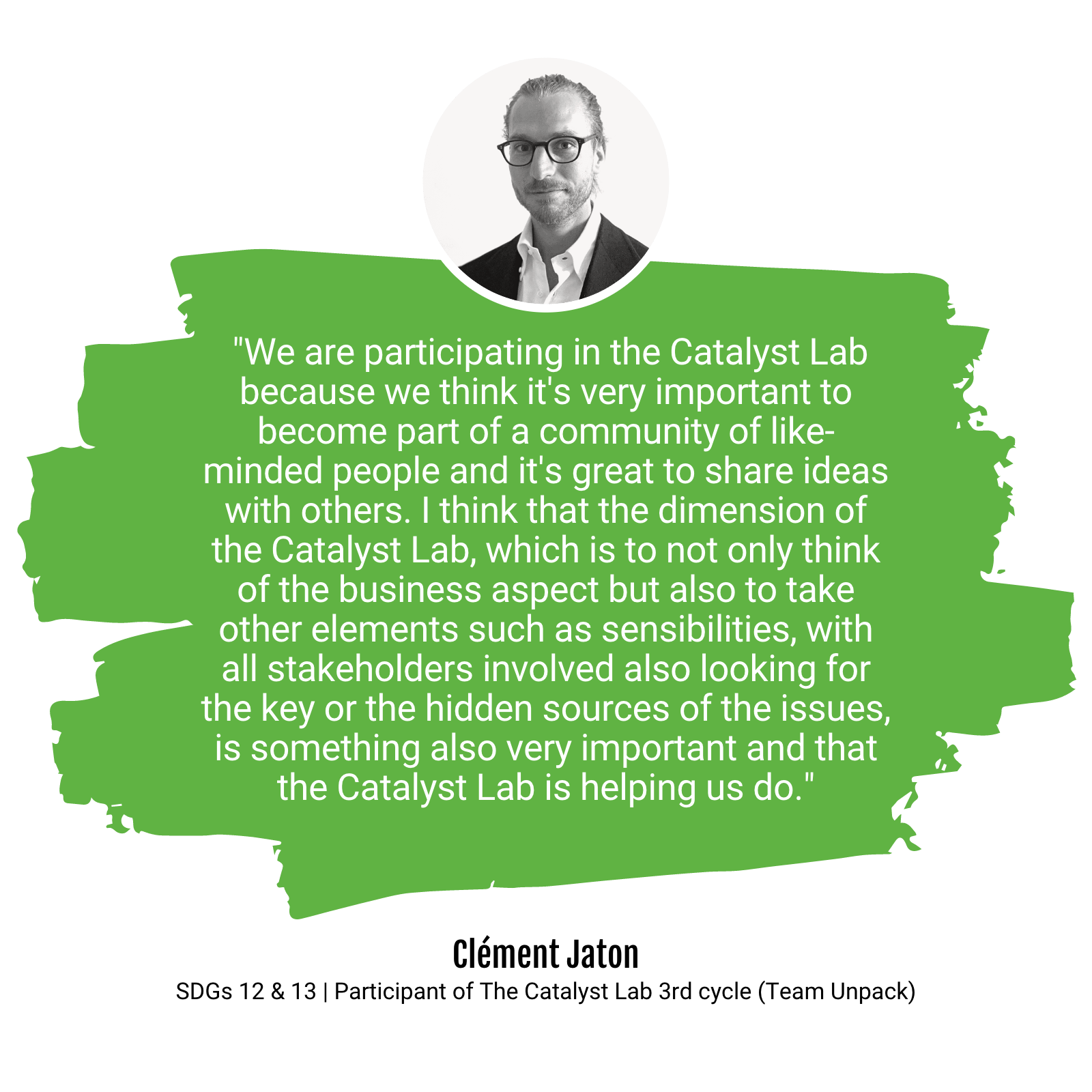
Third edition of the Catalyst Lab
In autumn 2022, the third Future Laboratory for Switzerland, the Catalyst Lab launched. During a 9 month path, our catalysts and their projects dove into a process of learning and contributing to a change towards more ecological responsibility, humanity and the common good. Thank you to our catalysts, supporters, learning companions and hosting team for taking part of this fantastic and inspiring journey! Here you will find all about the first Catalyst Lab cohort and their impact.
Are you our next Catalyst? Signal your interest here.
Catalyst experiences
CATALYSTS ABOUT THEIR PROJECTS
Massimo Calamassi
Sustainability consultant at Deloitte
Marie-Claire Graf
President of VSN-FDD-FSS
Miriam Nietlispach
Designer & Project manager at Tribecraft
Tobias Drilling
Master student in Development Studies
Lukas Aeschlimann
Co-Founder of Bern Unverpackt
Juliane Seyfert
Director adult education Waldkinder St. Gallen
Catalyst Lab Happenings
See the full cohort here:
“What I'm taking with me from the Catalyst Lab for the future is a better understanding of fundamental ways of understanding myself at the beginning, and having the tools to understand external environments with which I can better approach any number of future challenges."
- Aurelia Figueroa - SDG 12 & 17
Aurelia Figueroa grew up in the western US. Following international academic experience during her undergraduate and graduate studies, she relocated to Europe as a Robert Bosch Foundation Fellow in Berlin in 2009. She has 15 years of experience in social and environmental sustainability, including in the public and private sector, international diplomacy and social entrepreneurship. She has been a participant in and convener of local and international sustainability networks and values collaboration, creativity and connectivity. In her current role as inaugural Head of Sustainability at Breitling, she is implementing sustainability across stakeholder groups to contribute to the sustainable evolution of the Swiss watch industry.
"What I take with me from The Catalyst Lab is connecting with people who have similar mindsets but other projects. It's so much enriching and helpful for yourself to reflect about the others: you have the insights for yourself and that's so valuable. It shows me that growth isn't possible if you're not connecting your own path with others'."
- Gregory Turkawka - SGDs 2 & 12
Gregory Turkawka worked as a teacher and later as a research and teaching associate at the Zurich University of Teacher Education. The fact that more than one billion people do not have access to education led the Zurich native to establish the Alpha Foundation. The foundation supports learning concepts, education systems, technologies, examination and financing systems, and new forms of living and working together. In August 2020, Gregory Turkawka also founded the association "POIANA CUNOAŞTERII" (Glades of Knowledge) to support marginalized groups in the arts and education.











































